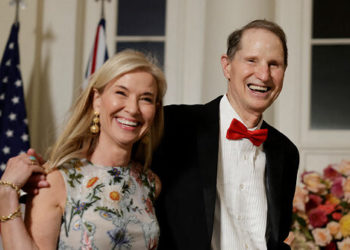Virtually every person of note in American politics has, rightfully, condemned the horrific killing of Charlie Kirk and expressed deep concerns about the growing incidence of political violence in the United States. Wherever we stand politically, we all agree that he should still be alive.
There has been less agreement about Kirk’s life and work. Death tends to soften our tendency to judge. And sudden, violent death — especially one as gruesome and shocking as this one — can push us toward hagiography, especially in the immediate wake of the killing.
So it goes for Kirk.
“Charlie inspired millions,” President Trump said in an Oval Office speech on Wednesday. “He championed his ideas with courage, logic, humor and grace.”
“The best way to honor Charlie’s memory,” Gov. Gavin Newsom of California declared, “is to continue his work: engage with each other, across ideology, through spirited discourse.”
Kirk’s approach, wrote the editors of Politico’s Playbook, “was to persuade, to use charm and charisma and provocation and the power of argument to convince people of the righteousness of his cause.”
There is no doubt that Kirk was influential, no doubt that he had millions of devoted fans. But it is difficult to square this idealized portrait of Kirk as model citizen with the man as he was.
Thank you for your patience while we verify access. If you are in Reader mode please exit and log into your Times account, or subscribe for all of The Times.
Thank you for your patience while we verify access.
Already a subscriber? Log in.
Want all of The Times? Subscribe.
The post Charlie Kirk Didn’t Shy Away From Who He Was. We Shouldn’t, Either. appeared first on New York Times.




